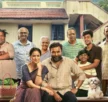Raavan – Music review
- 22nd October 2010
- POST IN :MUSIC
AR Rahman and Mani Ratnam together gave us epic music for Roja, Bombay, Dil Se (Uyire) and Saathiya (Alaipayuthey in Tamil), and when they teamed up with lyricist Gulzar, they came out with Dil Se and more recently, Guru. Needless to say, they were all amazing albums, and so I was left wondering whether the music for their latest venture, “Raavan” (to be released simultaneously as “Raavanan” in Tamil) would be able to rival these classic soundtracks. How wrong I was to doubt AR Rahman, even for a second? The Raavan OST is just as good as, if not better than the benchmarks the music director had left for himself in previous years. The Raavan soundtrack is catchy, upbeat and at times haunting, and each song leaves an impact on the listener, in my opinion.
Opening with an almost Lion King-esque African-style chant by newcomer Mustafa Kutaone, “Beera Beera” is an upbeat number with powerful African beats that are a joy to listen to. The lyrics “Beera ka dus maathe, Beera ka sau naam” (Beera has ten heads, Beera has a hundred names) indicate that this will be the lead character’s introduction song, and I can’t think of a better way to introduce the untamed Beera (Raavan), than with this pride-filled, testosterone-fuelled number! Rahman’s effortless fusion of African drums with a distinctly ethnic melody has culminated in this track; an energetic piece that manages not to overwhelm the listener with too-heavy beats or too-deep lyrics; they mainly chant “Beera” throughout! With its folksy feel, this is a song that would typically be handed to somebody like Shankar Mahadevan or Sukhwinder Singh. Instead, Vijay Prakash has been given the lead vocals. He may not have the coarse voice that you’d think this song would require, but he manages to render the song in a wonderfully spirited manner without being too forceful.
The next song is “Behene De”, and this song practically has AR Rahman tattooed all over it. It reminds me a great deal (in a good way) of “Satrangi Re” from Dil Se. They both have a similar structure to them: a simple, repetitive melody that is supplemented by complementary (but far from overpowering) backing instrumentals. Behene De, however, has a far more rocky feel to it when compared to Satrangi Re. The uncomplicated melody does not diminish this track in any way at all; it simply allows the lyrics to take a lead role here, because they truly are touching lyrics. “Behene De” loosely translates as “Let me flow freely” and thus indicates a sense of imprisonment and a desperate need for freedom. Incidentally, Gulzar also wrote the lyrics for Satrangi Re, and this same feeling of yearning is brought to the fore with his lyrics for Behene De. Karthik’s vocals are soul stirring; you can almost feel the character’s anguish through his voice.
Next comes “Thok De Khili”, with the rustic vocals of Sukhwinder Singh that this sort of soundtrack would be incomplete without. This song is uplifting in a sort of prepare-yourself-for-battle way; it resembles Azeem-O-Shahenshah from Jodhaa Akbar in some aspects, with its heavy beat and passionate assertions of the opening lines being repeated throughout. The main difference between the two however, is that where Azeem-O-Shahenshah is beat-heavy, Thok De Khili places its emphasis on the music, making it a very orchestra-oriented piece. It is a vastly instrument-heavy composition, but this only adds to the war-like feel of the song without overshadowing Gulzar’s powerful lyrics
I’m sure many will agree with me when I say that the beautiful song “Ranjha Ranjha” is one that stands out the most in this album. Despite having classical, almost Sufi-ish ties in its melody, the beat is distinctly modern. Here Rahman has exhibited that it is possible to fuse old with new without tainting the beauty of the melody. The song opens with Anuradha Sriram’s electronically enhanced (not a bad thing) humming, that features at regular intervals throughout, and playing a key role in maintaing the flow between each part of the song. The husky tones of Rekha Bhardwaj, and Javed Ali’s more polished yet unassuming singing totally contrast each other, but still the vocals are stunning to say the least. The opening lines of the song come from a Punjabi poem by Sufi poet Baba Bulleh Shah. The first line translates as “By repeating his name (Ranjha), I myself have become Ranjha”, and lyricist Gulzar has continued this poem with his own lyrics but has still maintained a meaningful and romantic feeling. Pairing these lyrics with Rahman’s incredible instrumental arrangement for this track would result in a beautiful piece of music in itself, but Rekha Bhardwaj’s vocals take it to a whole new level. Even the way she sings just two words “Ranjha Ranjha”, overflows with the passion of a young lovestruck girl who can’t take her mind off the love of her life.
Next comes the mellow composition – "Khili Re" – with the sweet voice of British Asian singer Reena Bhardwaj, who sang Yeh Rishta in Meenaxi and it’s Tamil version in Sakkarakatti and is a regular singer on Nitin Sawhney’s work too (note that she is not Rekha Bhardwaj from the previous track). Close your eyes and listen to this; you’ll almost feel like you’re walking on air, because that’s how light and dreamlike the music is for this one. It has an almost devotional feel to it, and though it may not strike a chord with those who are fans of the more beat-oriented songs, it is a gorgeous track nonetheless. The instrumental is uncomplicated – primarily a Tabla, strings and a flute – and thus the vocals and lyrics are given predominance here, and rightly so! Reena Bhardwaj has done a fantastic job with this one.
The final track featured on the album is “Kata Kata” – another upbeat number. It starts off super-catchy; the bugles at the start certainly make you sit up and listen. It’s a fun track – about a groom-to-be being teased about his last day of being a bachelor – and the music is just as fun. Ila Arun, Sapna Awasthi and Kunal Ganjawala provide energetic vocals from start to finish. This is surprising as the song gets faster and faster as it goes on, and yet these vocalists don’t seem to run out of steam! Probably not one of my favourite tracks; it is similar to the opening track Beera Beera, but to me, the uplifting raise-your-spirits sort of feeling was better portrayed in the opener. It is said to have been picturised with 500 dancers, so it could have a major impact on the big screen.
I’m not going to lie, the Raavan soundtrack is certainly unconventional when compared to many of the albums that have been released recently. It doesn’t consist of the heavy basslines and bi-lingual lyrics that seem to be the trend of late. Neither is it a purely classical/folk-based album. Rahman has struck a perfect balance between traditional and modern with this soundtrack, and Gulzar’s fantastic lyrics add a new dimension to each track. If I had to pick a favourite, Ranjha Ranjha wins hands down, can’t get enough of it, but I wouldn’t say no to having the entire album on repeat for a few hours!
Words: Kavya Rajagopalan © Thamarai.com
Kavya has studied Carnatic music from the age of 4 (in London) and has a passion for languages, travel, books, films, teaching and Science. She listens to an eclectic variety of music and is a shining example of a very young British Asian writer who is able to transcend borders and thrive in today’s multi-cultural London.
These words must not be reproduced without express written permission and are the opinion of the writer of the review. Thamarai also encourages you to buy the sound-track legally and enjoy it in it’s full glory.
- Previous Post
Guzaarish – Music Review






















